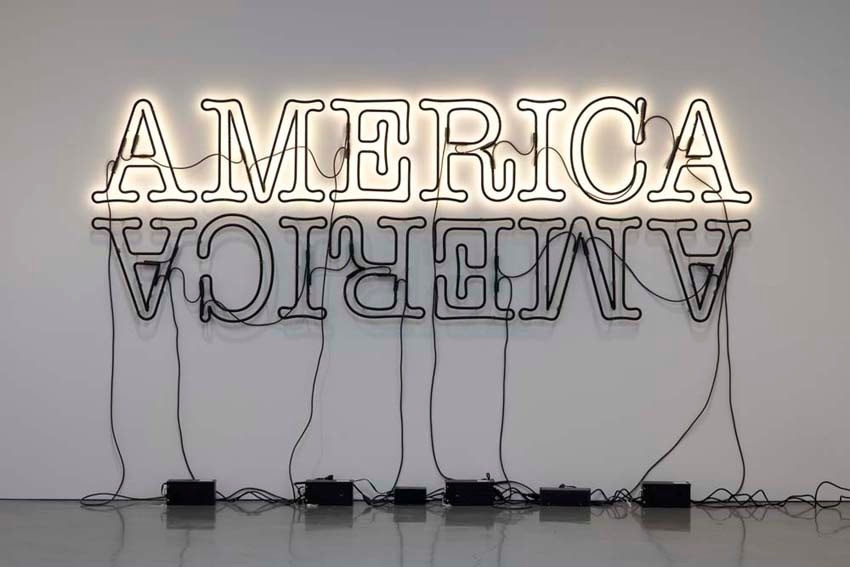In the Gallery: Introduction
Published On
August 16 2022
Author

"History is not the past. It is the present. We carry our history with us. We are our history."—James Baldwin, 1980 [1]
The first of Regeneration’s seven galleries, “Introduction,” offers visitors a contemplative gloss on the exhibition’s broader themes through a quartet of moments: a quote, a work of contemporary art, and two versions of the same short film.
James Baldwin first uttered the quote that helps open Regeneration in a 1980 speech given at Wayne State University on the contested status of Black English. Throughout that speech, Baldwin not only reminded his Detroit audience that Black history is a living, breathing thing, but he did so through an imagined encounter with a fictitious version of Greer Garson, winner of the 1943 Academy Award for Best Actress for Mrs. Miniver (USA, 1942).
“Actually,” Baldwin said, “we all know something very important that has brought me here. Let me try to spell it out for you, again. And let me suggest that the argument concerning black English is one of the most dishonest arguments in the history of a spectacularly dishonest nation. I kid you not. I grew up in Harlem. I was a shoeshine boy. I scrubbed toilets. And I can still cook. I was dealing with cops before I was seven years old and sleeping in basements before I was ten, watching my mother and my father, my brothers and my sisters, in the land of the free and the home of the brave, living as though every day was going to be our last. Now, how exactly do you expect me to explain that, to describe that to Greer Garson when she comes to teach me English? There is an irreducible gap between my teacher and my experience, between my teacher and my education.”
Baldwin likely plucked the Anglo-American star out of the ether at near random, but her utility to his argument about the “irreducible gap” between Black and white in America is obvious. Despite being name-checked decades after her heyday, Garson offered Baldwin an easily trafficked shorthand for the sort of white teacher who (in his view) would not be able to understand her Black students. Her sudden drafting into service says more about how film contributes to our shared understanding (and misunderstanding) of the world than about her individually.

Glenn Ligon’s Double America 2, 2014, © Glenn Ligon, courtesy of the artist
Baldwin’s quote about the persistence of history, with its evocation of a Hollywood icon, sits next to Glenn Ligon’s (b. 1960) Double America 2. This work of contemporary art from 2014 shows two Americas, one upside down. Illuminated one at a time, these two distinct Americas represent the divisions felt by some citizens. This painted neon piece is situated alongside the two versions of Something Good – Negro Kiss (1898), a silent short that shows off smartly dressed vaudeville performers Gertie Brown (1878–1934) and Saint Suttle (1870–1932) in what might be the earliest example of African American on-screen intimacy.
This juxtaposition is a reminder of not only a divided US history but also a divided cinematic history. Discovered in 2017 at the University of Southern California film archives and subsequently added to the National Film Registry, Something Good – Negro Kiss is purportedly a parody of an even shorter 1896 film called The Kiss, produced for Edison and featuring a white couple. In 2019, the National Library of Norway discovered a different version of Something Good – Negro Kiss, one never listed in film records in the United States. This second version features the same performers reenacting a courtship scene, but also offers a long shot where the two have swapped places. Research as to why it was created remains ongoing, but this previously unknown material expands the historical record of these accomplished actors and enhances our understanding of Black performance in film, theater, and popular culture in the late nineteenth century.
After “Introduction,” Regeneration proceeds with “Early Film.”
[1]: James Baldwin, "Black English: A Dishonest Argument," James Baldwin: The Cross of Redemption, Uncollected Writings (Pantheon Books, 2011), 125.